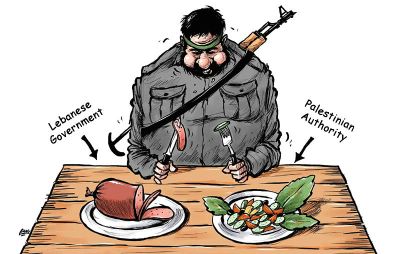1000"The Mouth" - the entire introduction made no sense. 1004The drone came from Iran.Iranian drone plane buzzes U.S. aircraft carrier in Persian Gulf19:06
30/ 05/ 2006
TEHRAN, May 30 (RIA Novosti) - A pilotless Iranian reconnaissance plane circled for 25 minutes over a U.S. aircraft carrier in the Persian Gulf before returning safely to its base, a senior Iranian official said Tuesday."Our pilotless reconnaissance plane flew over the USS Ronald Reagan in the Persian Gulf unnoticed to the Americans for 25 minutes," the official said, according to Iran's Fars agency.He did not say when the flight took place, but added that U.S. radars picked up the unmanned aerial vehicle after 25 minutes, and that four USAF fighters and two helicopters were scrambled to intercept it. However, the Iranian plane had already crossed the border back into Iran and landed at its base. "This points to holes in the U.S. military reconnaissance systems deployed in the Persian Gulf," the Iranian official said. http://en.rian.ru/onlinenews/20060530/48833304.htmlIt's a known fact Iran supplies Hezbollah. The question is are Iranian soldiers involved in the aggression against Israel.1025commericals1028The border towns are going to empty out. The escalation is nearly guaranteed if sovereign nations such as Iran takes up sides. Hezbollah is a terrorist network. If a sovereign nation is going to endorse terrorists then they are opening themselves to consequences. 1033commercials The Energy Alternatives are found without spin at :The Environmental Defense Fundhttp://www.fightglobalwarming.com/index.cfm?source=search_fgwadcACTION TO RETURN 'EARTH' TO HEALTH IS NEEDED NOW. Not years from now. New leadership is desperately needed in the USA.1035Thank you, Ben.
1040
There is no difference between Hezbollah or Hamas or any other terrorist networks in the Middle East except the leadership wants to be known autonomously. They rely on each other a great deal to support their positions.
The oil fires in Lebanon needs to be extinguished. Those gases are poisonous to the area where the smoke travels. It's not right it is allowed to burn. Israel needs to secure these areas before they move any further into the Hezbollah infrastructure.
If the Middle East is to believe Israel is only concerned with terrorist organizations then they need to be heroes to some extent to the innocent citizens who are still struggling to understand this conflict. To them, members of Hezbollah are neighbors, friends and family in some cases. To discern that they are also terrorists and not liberators is a stretch unless Isael actually are the liberators. Israel is working within the framework of the UN that calls for the complete autonomy of Lebanon. The people of Lebanon while honoring their sovereignty have to realize Israel is not the enemy. Making Lebanese citizens safer will help that. As a matter of fact the more trustworthy the IDF appears to the citizens of Lebanon the more likely they will be to ally with them.
Just a thought.
1048
commercials





